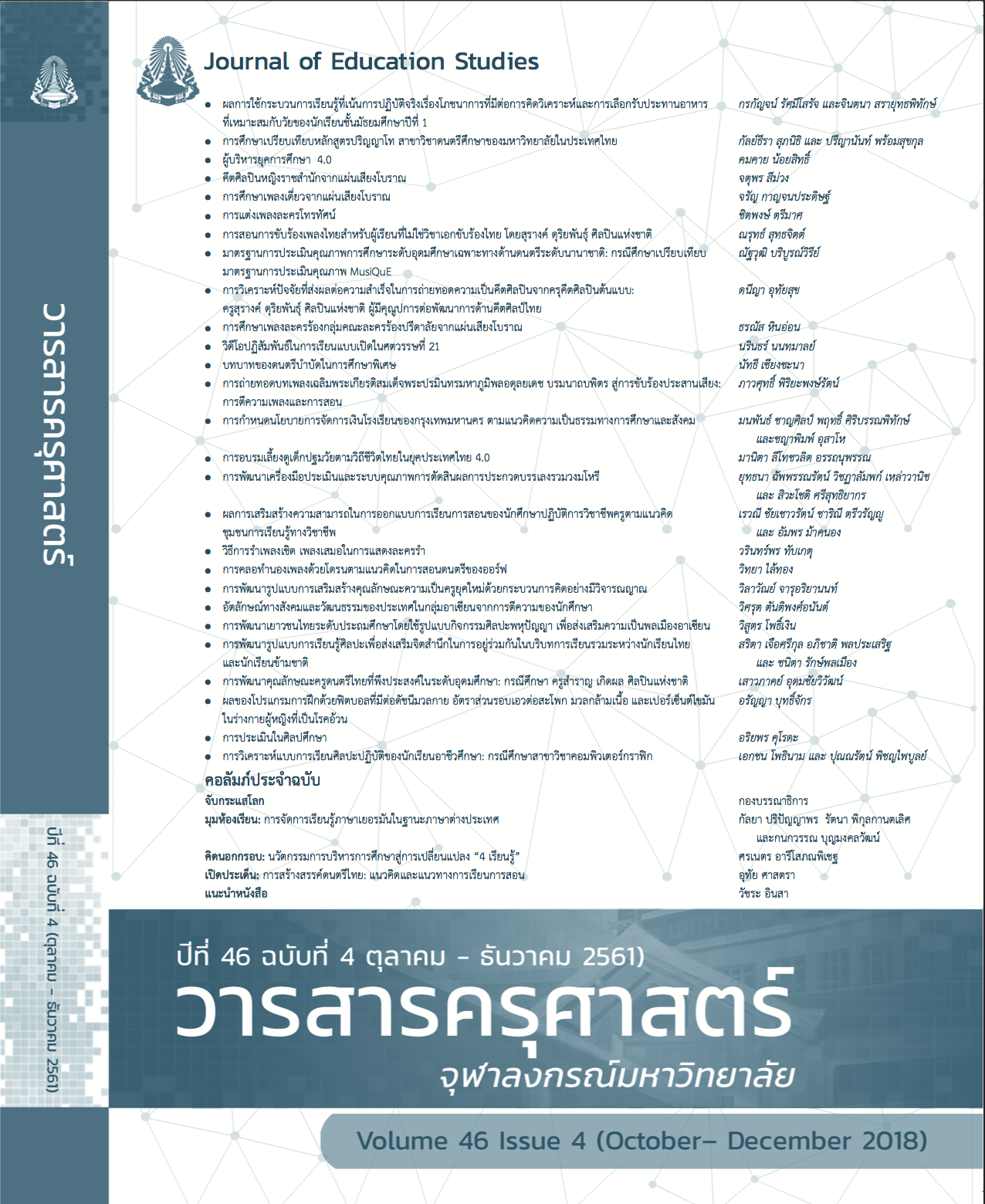การพัฒนาเครื่องมือประเมินและระบบคุณภาพการตัดสินผลการประกวดบรรเลงรวมวงมโหรี
Keywords:
MAHORI ENSEMBLE, MAHORI ENSEMBLE COMPETITION, ASSESSMENT TOOL, QUALITY JUDGMENT SYSTEMAbstract
The study “The Development of Assessment Tools and Quality Judgment System for Mahori Ensemble Competition” aims to accomplish three purposes. Firstly, to investigate the evaluation criteria and the assessment tools of the traditional Thai musical instrument competitions with the Royal awards winning from all over the country. Secondly, to analyze the framework of the assessment regulation for the singing and Mahori ensemble competitions. Finally, it aims to develop the assessment tools and the quality of the judgement system for Mahori ensemble competitions.
The results show that, firstly, the criteria can be categorized into three groups: type of competition, qualifications of the competitors, and the assessment of the performance There are two ranges of scores in each criterion. Secondly, this study found two types of singing and Mahori ensemble competitions. Lastly, the high-quality assessment tools cover two evaluations, which are, the competitors’ personal skills in performing musical instruments and the ability in performing ensembles, which consists of five elements that should be marked with a five-rated assessment. The quality of the assessment based on the judges’ objectivity shows that the Cronbach’s alpha coefficients and the intraclass correlation coefficient are at .929 and .853, respectively. For the judgement system, the results show that the high quality Mahori ensembles must include ten aspects: (1) the purpose of the competition, (2) the time duration, (3) the assessment criteria, (4) the process of the competition, (5) the judges’ seminar for the understanding of the assessment, (6) the recognition for the significance of the assessment tools in marking and calculating the scores, (7) the judges’ meeting to ascertain the results of the competition, (8) the recommendation for the competitors, (9) the final meeting to wrap up the whole process of the competition, and (10) the lesson synthesized from success or failure of the competition.




